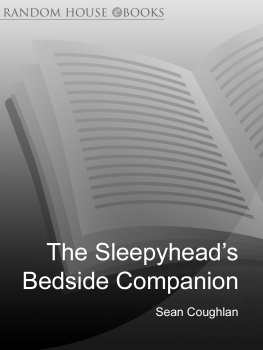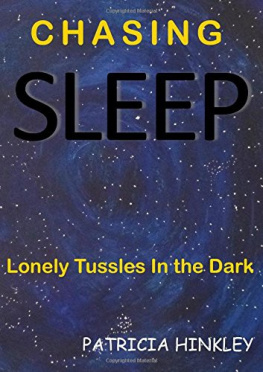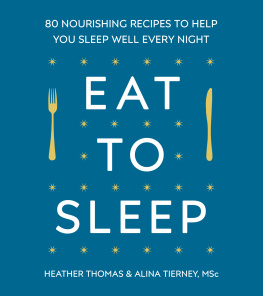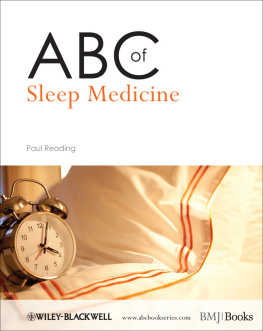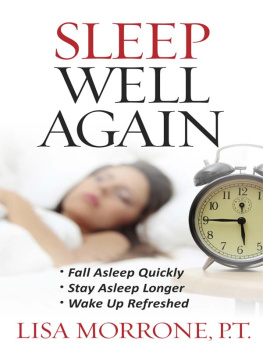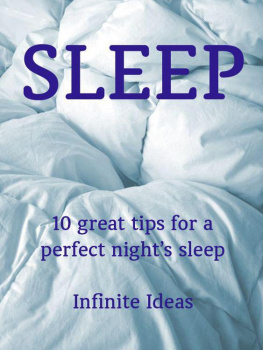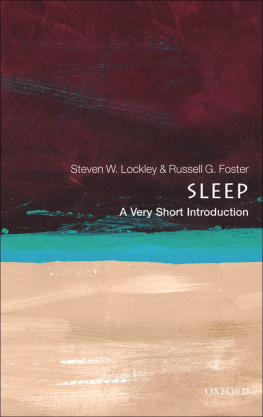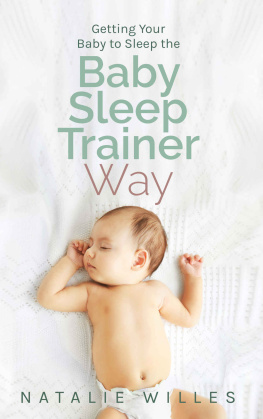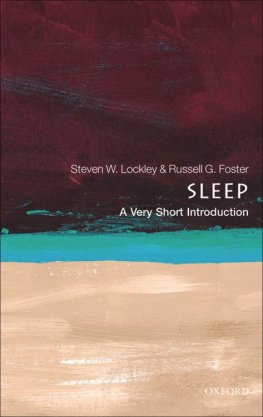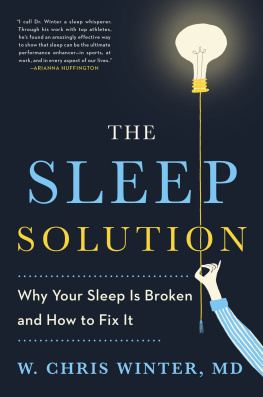CONTENTS
About the Book
Sleep has become a modern obsession, in our overcrowded lives its what we crave more than almost anything else. It is a universal human experience, as necessary as breathing and as nourishing as eating. But how much do we know about this mysterious nightly pleasure?
Delving into the unexpected and rich story of sleep ranging across science, history, literature and philosophy The Sleepyheads Bedside Companion takes a journey into sleep heaven and sleep hell.
About the Author
Sean Coughlan is a journalist at the BBC. Since childhood he has had a deep dislike of getting up too early. He lives in London and as the father of three young children, he takes a very keen interest in getting enough sleep.
To my mother and father in thanks for inventing the Eight OClock Man to make me sleep at night
Come, Lets to Bed
To bed, to bed
Says Sleepyhead,
Tarry a while, says Slow.
Put on the pan,
Says Greedy Nan,
Well sup before we go.
INTRODUCTION
In Praise of Sleep
SLEEP HAS BECOME a modern obsession. In our overcrowded, time-starved lives, its sleep that we crave more than almost anything else. When we run out of time, its sleep that suffers, turning tiredness and sleep deprivation into a daily self-inflicted punishment.
What makes this an even greater folly is that there is so much to be enjoyed about sleep. Its natures finest and most mysterious free gift. Its an inexhaustible source of rest and recuperation, a respite from the hassle and hustle all around. Instead of rationing sleep, we should be revelling in it.
In a burnt-out 24-hour culture, sleep is a last patch of long, cool, green grass, a place to catch your breath and look up at the sky. Sleep is an essential part of the natural habitat of being human. It feels like the only place left where no one expects you to work or shop.
So why do we treat sleep so badly? Why dont we savour sleep, enjoy its pleasures, learn about its history, culture and meaning? If sleep was charged at restaurant prices then maybe wed have sleep gourmets and sleep recipes, turning the nightly kip into an epicurean event. Instead we chop back sleep, cutting its corners, doing without.
Its not as if we dont know the consequences. The dangers of not getting enough good quality sleep have become ever more apparent. Barely a month passes without some new medical research showing the physical damage caused by sleeplessness. Lack of sleep makes us anxious, irritable and unable to concentrate. Only getting five hours sleep leaves someone as impaired in performing simple tasks as if they were over the drink-driving limit. Over a longer period, inadequate sleep sharply increases the risk of heart disease and is associated with an increased likelihood of obesity and diabetes. Sleep deprivation makes it more difficult to learn and remember.
So why when we know all this do we make a mess of sleep? How do we turn it into such a disaster area, with so many claiming to be sleep starved or suffering from insomnia or the growing problem of sleep apnea? Everyone sleeps, maybe not as much as we might like, but its a universal human experience, as instinctive as breathing. But for something that should come so naturally, we seem to have turned it into a problem.
Sleep has been caught in a pincer movement. There are so many demands and distractions in our restless, broadband lives that we go to bed too late and get up too early and never get the afternoon sleep that our bodies want as compensation. If that isnt bad enough, then there is a misguided character assassination of sleep, presenting it as a waste of time, an enemy of hard work and ambition. The fact that sufficient sleep is a physical necessity and that we would drop dead sooner from lack of sleep than lack of food doesnt seem to register.
Its not as if we have much of an excuse to miss out on sleep. They might have privatised the rainwater and polluted the fresh air, but sleep is there in abundance and without cost. No charge for the re-charge. Sleep is the spa that never closes. Its completely egalitarian. Samuel Johnson called it the impartial benefactor, ready to come to the rescue of saint and sinner, prince or prisoner alike. Sleep has no priority boarding queue. But still we manage to get it wrong , cutting short our sleep and having a miserable day of suffering from what doctors describe as TATT or tired all the time.
Weve all been there when sleep means more than anything else. Sitting exhausted in some miserable departure lounge when a flight has been cancelled, the lack of sleep leaving you feeling rougher than the carpet tiles on the airport floor. Or theres the exhaustion of trying to calm a howling baby on a winters night, with the red eyes of daylight appearing over the rooftops. Or that dead-head sensation of going to work with so little sleep that it almost hurts. All we want at such times is for sleep to come to our rescue, to help the weary and worn-out, to throw its cloak around us.
This book is about restoring the balance, celebrating the neglected glory of a good nights sleep. Instead of worrying about sleep, or dismissing it as wasted hours, we should be treating it as an intriguing delicacy, a pleasure that we can enjoy again and again, a mystery train that takes us into dreams and adventures, giving us a tour around our own subconscious, a place with its own history and forgotten culture. We should admit that there are few finer pleasures than that moment when we give in to the desire to sleep.
Sleep connects us with something very profoundly rooted in nature, its where we let go, sharing the rhythm of sleeping and waking with all kinds of other living creatures, stepping away from the shrill demands of the day. Its not worth getting into bed for anything less.
This is a bedtime story for the sleepyhead inside all of us.

Marie Antoinette rested her head in ostentatious splendour before losing it on the guillotine.
And So To Bed
Undercover: a history of the bed
WHERE IS THERE a finer invention than the bed? Its a machine for sleeping. It needs little maintenance and delivers magnificent results. It is the ultimate four-legged friend. But do we celebrate its history, is there a statue in every town to its pioneers?
Wherever there have been people there have been beds. In the Neolithic era, people slept under skins and furs in beds lined with grass or heather. On the rocky Orkneys, in the 5,000-year-old archaeological site at Skara Brae, there are ancient box-shaped beds made out of stone, which would have been softened with animal pelts and bracken.
A history of an object usually explains how much its design and performance have been transformed over the centuries. But the curious splendour of the bed is contained in how little it has changed. It could have been all kinds of shapes, but look inside an ancient Egyptian tomb and what does the bed look like? Its a wooden rectangular frame with four short legs. You could buy something similar in John Lewis. Of course the pharaohs had an appetite for decoration, so there are more elaborate beds with all kinds of animal designs attached, but the basic template has remained unchanged.
The Roman bedroom was known as the cubiculum, and this was often rather cubicle-like and functional. The type of beds the Romans brought on their conquest of Britain were also plain and practical, not dissimilar to the beds brought by later Scandinavian invaders, known as the tribe of Ikea. The Roman bed was a rectangular frame, made out of wood or metal, with straps or ropes or metal bands fixed across the top to support some kind of soft bedding stuffed with feathers or straw.

